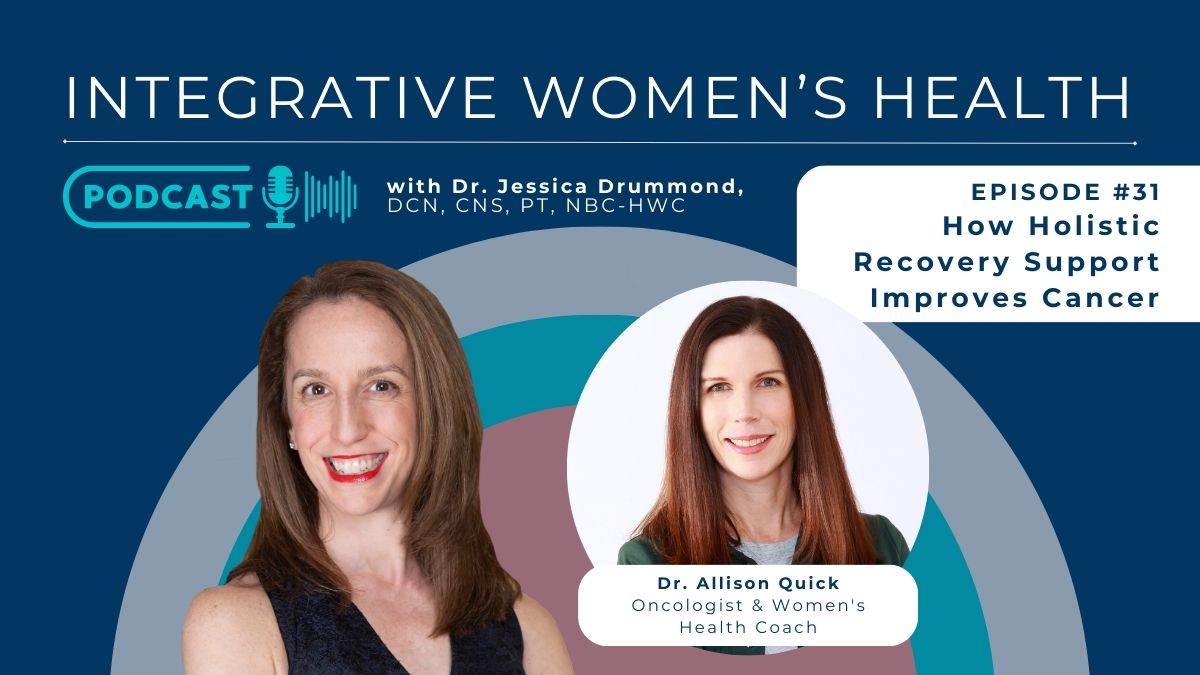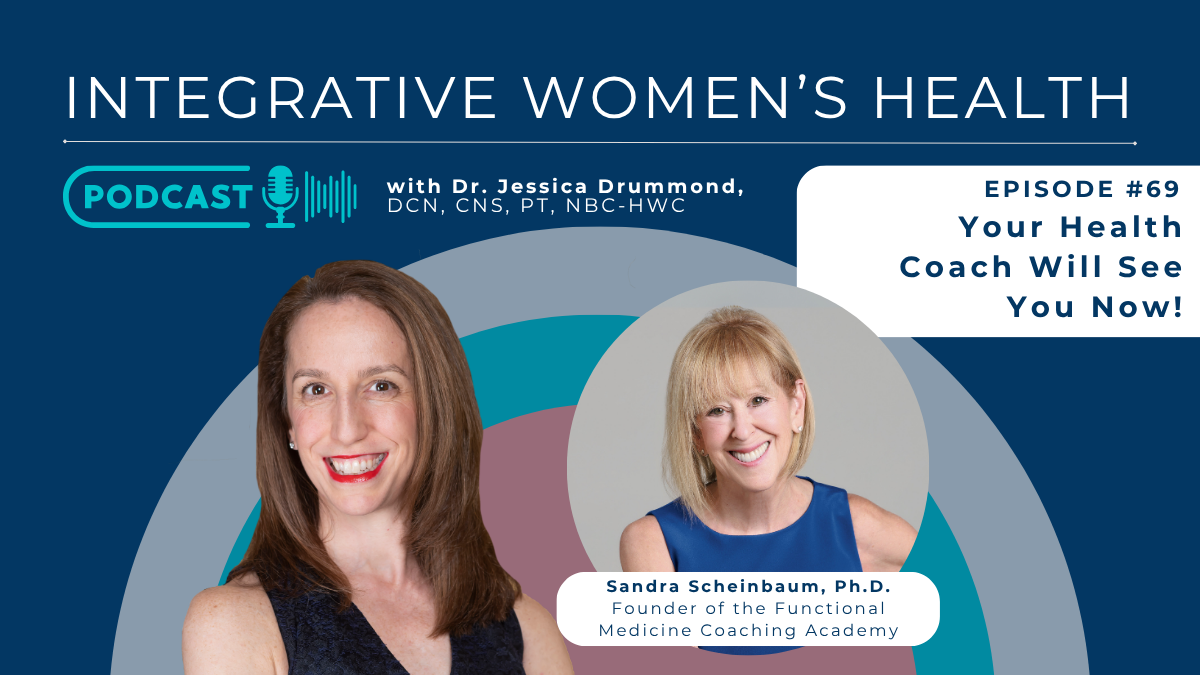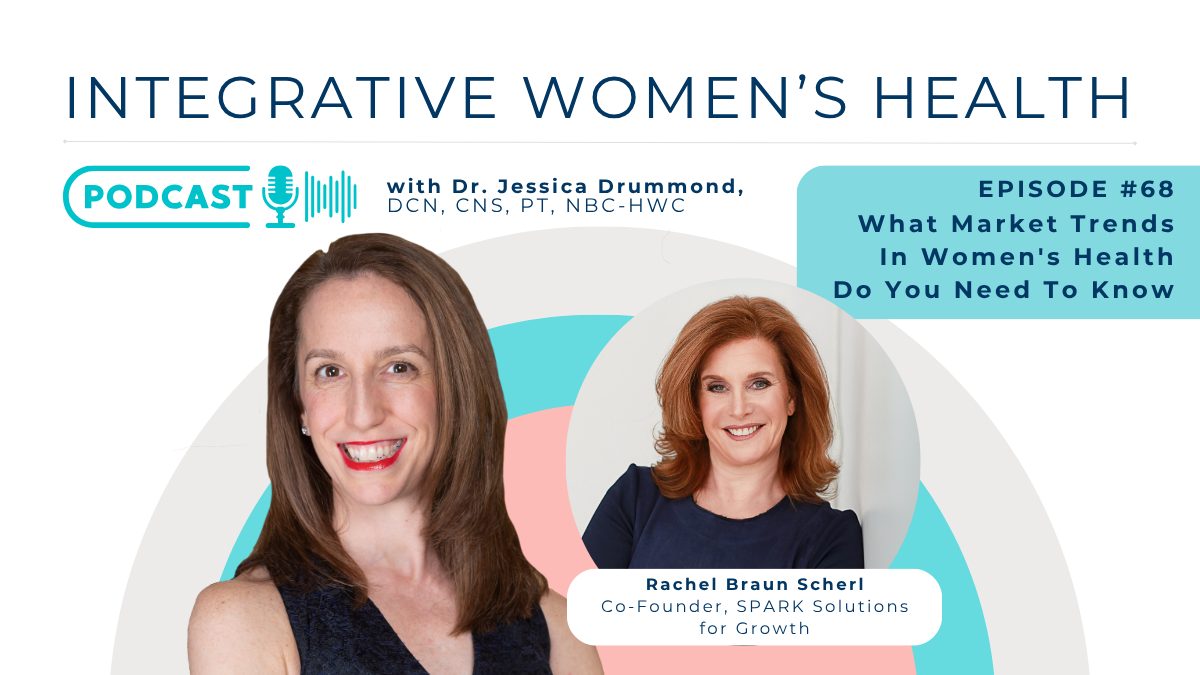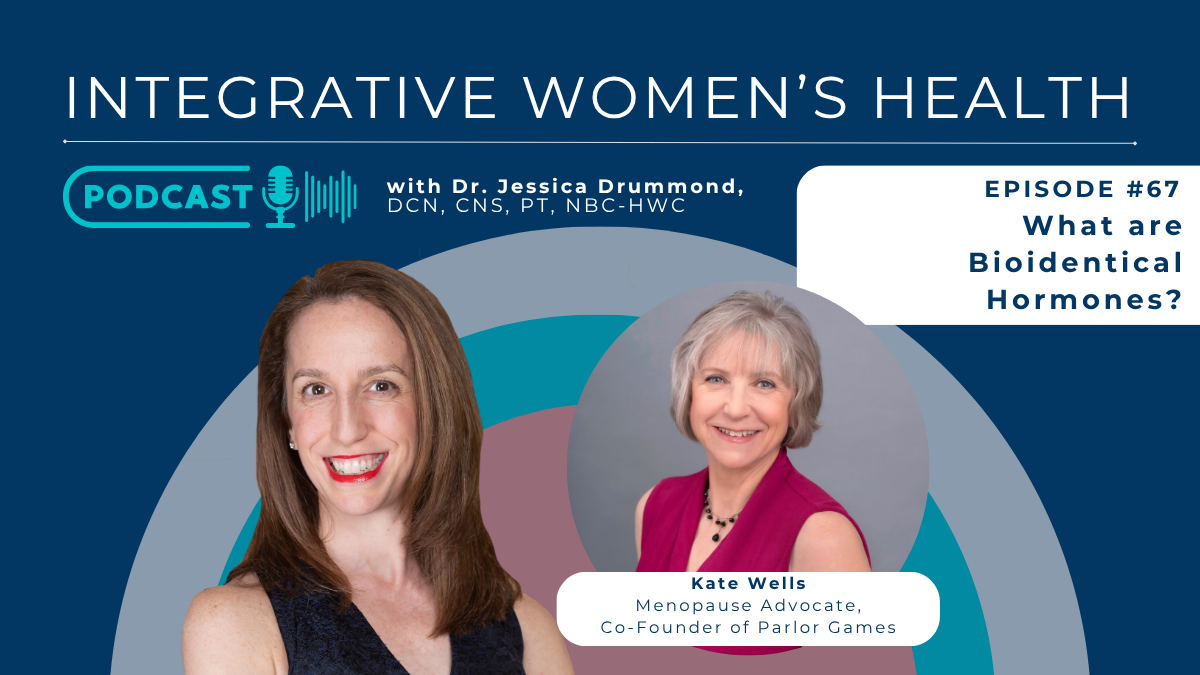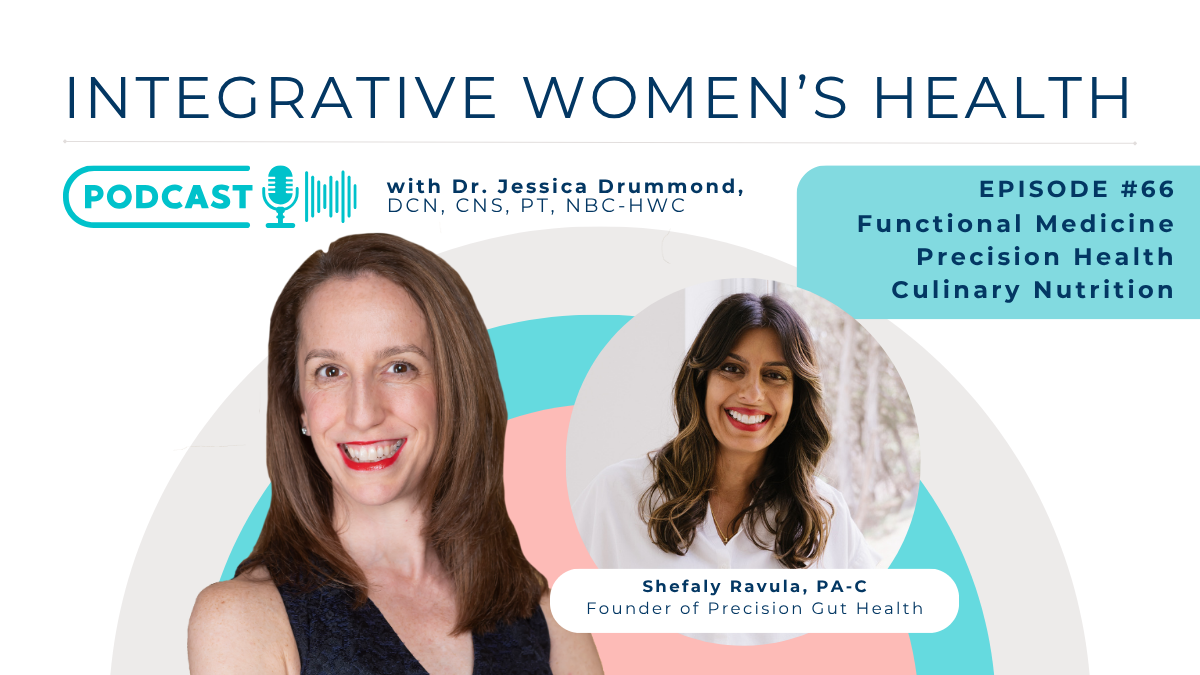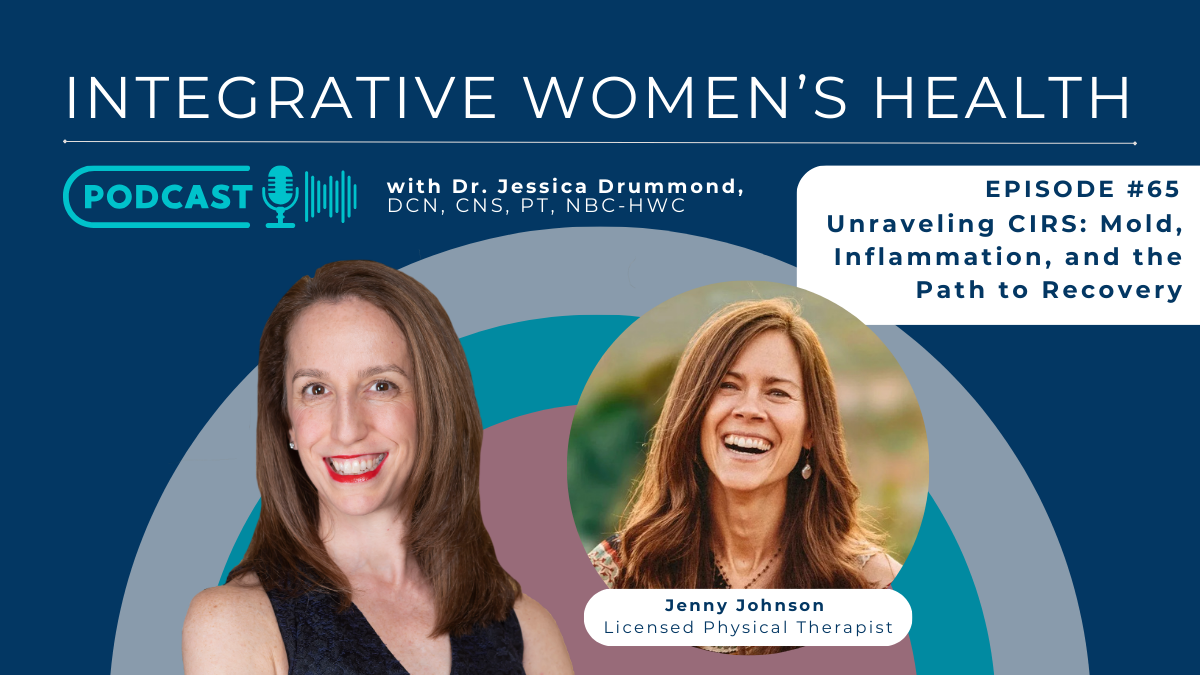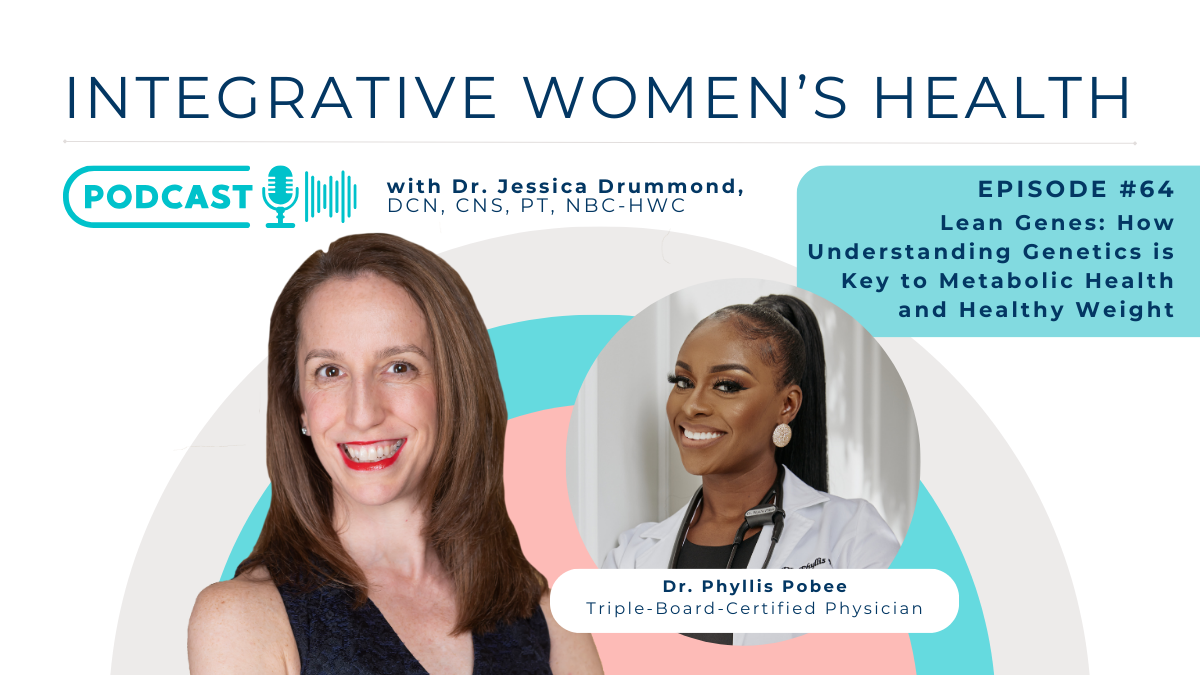Follow Us for Free:
About the episode
“I wanted to do the work I was trained to do and to help treat their cancer, but also to help them live well in the long term.” – Dr. Allison Quick
Sometimes, when people consider training in health coaching skills, there’s a lingering worry that they’ll have to completely leave the conventional system they’re already a part of. Whether you’re a physician, nurse practitioner, physical therapist, or something else, many of our graduates have stayed within the convention systems and simply expanded into new offerings for patients and clients.
At first, this might come with growing pains for you and your organization, but ultimately, it’s so valuable to make this change from within since conventional practices are where most of the patients are. Many of these patients want and can benefit from additional support on their healing journeys, and your health coaching skills can help them navigate this.
Today, I’m thrilled to introduce you to Dr. Alison Quick, one of our Women’s Health Coach Certification Program graduates who has done just this. Dr. Allison is a radiation oncologist who works at Ohio State University in the women’s health oncology specialty and uses her coaching training to improve long-term health outcomes for her patients.
In this conversation, Dr. Allison and I discuss what it looks like to integrate health coaching into oncology, Dr. Allison’s career journey, the challenges of motivating survivors to adopt healthier lifestyles, the importance of addressing emotional and relational health, the benefits of health coaching for both patients and healthcare professionals, and more.
Enjoy the episode, and let’s innovate and integrate together!
About Dr. Allison Quick
Dr. Allison Quick is a Radiation Oncologist who has worked with women with breast and gynecologic cancers for about 17 years. Her work as a radiation oncologist has been very meaningful; however, after residency and training, she realized that she hadn’t learned how to manage the long-term effects of treatment very well. Dr. Allison now utilizes her Health Coaching certification training skills within her practice to expand survivorship and vitality for women who are recovering from cancer to help them live more fully.
Highlights
- Dr. Allison’s experience in conventional medicine and her motivations for integrating health coaching into her oncology practice
- The significant long-term side effects cancer survivors face post-treatment
- Dr. Allison’s growing interest in cancer survivorship research and quality of life for patients
- Struggles with burnout during the pandemic and the importance of self-care
- The role of coaching in cancer recovery
- Dr. Allison’s experiences and learnings from the Women’s Health Coach Certification Program
- How Dr. Allison’s practice is evolving to include health coaching
- Plans to expand coaching services
- Research on the effectiveness of health coaching programs
- Making gradual changes within the conventional healthcare system
- Measuring the long-term benefits of health coaching
- How coaching skills have positively impacted Dr. Allison’s holistic health and well-being
- Encouragement for those feeling burnt out
- Maintaining a balance between work responsibilities and your personal life
- Recognizing your value in the workplace and the importance of self-care
Connect with Dr. Allison Quick
- Email Dr. Allison Quick at allison.quick@osumc.edu
- Dr. Allison Quick at the Ohio State University Medical Center
Ready to revolutionize your career and grow your practice?
- What is the next step in your career? Click here: https://integrativewomenshealthinstitute.com/start-here/
- Integrative Women’s Health Institute on Instagram | @integrativewomenshealth
- Integrative Women’s Health Institute on YouTube
Learn more about The Integrative Women’s Health Institute’s Programs.
Click here for a full transcript of the episode.
Dr. Jessica Drummond 00:00:03 Hi and welcome to the Integrative Women’s Health Podcast. I’m your host, Doctor Jessica Drummond, and I am so thrilled to have you here as we dive into today’s episode. As always, innovating and integrating in the world of women’s health. And just as a reminder, the content in this podcast episode is no substitute for medical advice, diagnosis, or treatment from your medical or licensed health care team. While myself and many of my guests are licensed healthcare professionals, we are not your licensed healthcare professionals, so you want to get advice on your unique circumstances. Diagnostic recommendations treatment recommendations from your home medical team. Enjoy the episode. Let’s innovate and integrate together. Hi there, and welcome back to the Integrative Women’s Health Podcast. I’m your host, doctor Jessica Drummond, founder and CEO of the Integrative Women’s Health Institute. I am so thrilled to introduce you to our guest today, Doctor Alison Quick. She is a graduate of the Women’s Health Coach Certification Program and she is a trained radiation oncologist. She works at the Ohio State University in their women’s health oncology specialty.
Dr. Jessica Drummond 00:01:33 And I can’t wait to introduce you to how she is utilizing her Health Coaching certification training skills to expand survivorship and vitality for women who are recovering from cancer to live more fully. And much of her work is actually inspired by her own story. So let’s get right into it. Take a few notes about how even if you don’t want to have a complete career change, if you are a clinician or you are doing something else entirely, and you want to learn this skill set of health coaching, but you may or may not want to start your own business, you’re going to get a lot out of this episode. I’ll see you on the other side.
Dr. Jessica Drummond 00:02:23 Hi there and.
Dr. Jessica Drummond 00:02:24 Welcome back, everyone to the Integrative Women’s Health Podcast. I’m your host, doctor Jessica Drummond, founder and CEO of the Integrative Women’s Health Institute. I’m thrilled to be here today with Doctor Allison Quick. She is a graduate of our Women’s Health Coach certification program, and we’re going to talk about why she wanted to add health coaching to her already deep and wide skill set as a physician oncologist.
Dr. Jessica Drummond 00:02:53 Welcome, Allison.
Dr. Allison Quick 00:02:54 Thanks, Jessica. Glad to be here.
Dr. Jessica Drummond 00:02:56 So tell me about your life and maybe some of the kind of moments or kind of transition moments or highlight moments where you thought, you know, it’s so, I guess exciting and thrilling and supportive to actually be able to help people cure cancer and survive. But it’s not just about survival, both in your own life and any of your patients who inspired you.
Dr. Allison Quick 00:03:27 Yeah. So, you know, going through training and in my early years of practice, I’m a radiation oncologist, and I’ve specialized in both breast and gynecologic cancers in my career, mostly in the recent years, gynecologic cancers. And we learn a lot of very technical aspects of treating cancer and how to get people through the immediate side effects of their treatments, which can be significant for a time and less for others. So, you know kind of learning management of symptoms. And then from there, you know, during your residency, a lot of the training for that patient stops once they finish their treatment.
Dr. Allison Quick 00:04:09 And you don’t necessarily see them again during training because maybe your rotation or what you’re doing. We rotate a lot through different things, you know, as you’re going through residency. So as I got into my career and was seeing more and more of my patients long term after their treatments, a year or two down the road, I just started noticing that there were things I really hadn’t learned how to deal with and how to help women with. So a lot of lingering long term side effects, whether it was just never getting back to their normal energy level, just never feeling normal again. A lot of pelvic complaints, vaginal complaints, sexual dysfunction, and a lot of things that I just didn’t feel equipped for from my regular training. And it started to really weigh on me because I wanted to be, of course, doing the work I was trained to do and to help treat their cancer, but also to help be helping them live well long term, and just trying to figure out how to help them manage lingering long term side effects.
Dr. Allison Quick 00:05:12 And so I did develop an interest in cancer survivorship research and quality of life, and kind of got more involved with that aspect of cancer care. And, you know, this is one of those kind of areas that just the more I went through, the more I just continued to ask myself how I can help and support these women live well after their cancer treatments. And simultaneously, I was seeing people who didn’t really seem like they either valued their health or, you know, we’re trying to make changes which could be important for them. For example, you know, so you get people through their cancer treatment and then they’re still smoking or maybe still, you know, really overweight and not exercising. And, you know, you kind of want to say this should be like a wake up call. You just had cancer, you know, hopefully you should have an interest in taking care of your body. And that wasn’t always, you know, it wasn’t seeing that. So the other question is, was how to motivate women to want to take care of themselves, you know, during their cancer journey and beyond.
Dr. Allison Quick 00:06:20 So those were kind of two professional aspects to me, having an interest in the health coaching. We don’t have a lot of time during our clinic visits to spend necessarily coaching them. So it’s still something I’m sort of figuring how to integrate into my care. So those are kind of my professional interests. Personally, I was just really burned out a few years ago and had been really busy. My husband is also a physician, and this was kind of probably all around the time of the pandemic hitting, but we had both been working full time. We had small children, and, you know, I was probably that type, that person who really wasn’t taking care of themselves, at least not emotionally and relationally, and just kind of hit a wall with with everything and started working with some counselors and realizing that I really needed to take time to value myself and the ways that that meant for me. And so really having somebody who could believe in me and taught me to take care of myself, to value myself, to find the value in the worthiness that I had in myself, and to do what I needed to get healthy.
Dr. Allison Quick 00:07:34 So that all kind of coincided with pandemic hitting and wanting to make some real changes in my life. And just with my approach to, you know, not only my job, but just kind of everything. So those kind of were the main driver events around me looking to add some additional training to my career?
Dr. Jessica Drummond 00:07:54 Yeah, and I think that’s so common that we can see it in other people. Right? You can see this person who so obviously had a significant wake up call and then they survive cancer, and yet they’re still smoking or they’re not exercising or they’re not eating well. And you can sometimes I think, and that’s why we start in our program with turning the mirror on ourselves, because there are always blind spots in our own life. You might have been exercising and eating well, and yet there were emotional health stressors. There were relational stressors. You know, some people it’s financial stressors or career stressors or parenting stressors. It could be anything that will respond to that coaching piece. So you had some counselors.
Dr. Jessica Drummond 00:08:45 What does coaching now look like for you? What do you feel like is one of the most important things about coaching women who are maybe not taking care of themselves in some way, even though they might know how to do it. They might know what they should be doing, but they’re not taking that action.
Dr. Allison Quick 00:09:04 Yeah, I mean, I think a lot of it is getting down to the why question. And I know there’s kind of a fine line between, you know, where you need counseling and where you need coaching. But at some point after you delve a lot into the nitty gritty of what’s why and what’s been going on in your life, which may be needing to be done with counseling, but at some point there is a sense of, I think, of agency that we all need to manage our life and to take responsibility for it and how we want to move forward from maybe to the past, maybe some things that have been going on. But how do we really want to, like, redirect our lives and change it and be not a better person, but have better habits or better stress management, whatever it is for the individual.
Dr. Allison Quick 00:09:54 And I think that’s where coaching can really be important. And helpful is because it’s kind of like moving into the what can we do do now and the practical steps for that.
Dr. Jessica Drummond 00:10:06 Yes, absolutely. I think there is a very nice collaboration with mental health professionals sometimes going more deeply into the past reasons and programming and roadblocks emotionally. And then, as you said, being able to take that understanding and actually implement it practically. So if you think about how you were feeling, then kind of back in around 2020 when a lot was going on personally, you felt you weren’t able to offer your clients as much as you would have liked from a recovery standpoint. Now, after having gone through the program, first of all, within the Women’s Health Coach Certification program. What were some of your favorite parts of that? Your biggest moments, like how did the process of actually doing the certification impact your life and your work?
Dr. Allison Quick 00:11:02 Yeah, I loved the program. I thought, you know, the educational material was definitely, you know, one side of it.
Dr. Allison Quick 00:11:08 And of course, I was trained in Western medicine, so I didn’t get a lot of the integrative and alternative treatments through just standard medical school. So I always love hearing about that stuff and how it can all be kind of working together for, you know, our best interest and optimal health. And when I was looking for programs, of course, I wanted to get something that was really a high quality program because there’s a lot of stuff out there. So I really wanted something that was really high quality that I could get certified if I wanted to. And then because this had a focus on women, which was, you know, my career is interest. It was, you know, really appealing to me. So I love the material. And of course, the main advantage of the program is the experience that you get with the coaching through the retreats. And I wasn’t sure if about the retreats at first and what I was going to think about them and like, oh gosh, it’s like a whole weekend.
Dr. Allison Quick 00:12:08 And, you know, but of course, they were extremely valuable. And not only having just the experience of coaching people, but being coached and having every time it was the situation was that you just kind of had to come up with a scenario to be coached on. And while it always seemed kind of random, usually they were like real things going on in our lives that maybe not didn’t seem like a huge deal beforehand, but you just realize how nice it was to have someone to talk about and to get some perspective and some coaching on different aspects of our lives. So it was nice to have some personal coaching and to get the experience of coaching others and to be able to get feedback from that. And working with the master coach was awesome. I loved working with Susan and getting the feedback from her, and just being able to get to know her personally was really great. And I, you know, I know she’s someone who’s still there. If I needed to ask a question to or reach out to.
Dr. Allison Quick 00:13:06 I did enjoy the calls. I wasn’t always able to participate in like the weekly calls just because of my work schedule. But those in the accountability groups or the triad groups were nice just to meet other people and to get some other ideas from and to have a sense of community.
Dr. Jessica Drummond 00:13:23 Nice. And now that you have the skill set, how have you seen your practice begin to shift? And do you have any kind of interesting upcoming goals for the next year or two?
Dr. Allison Quick 00:13:37 Yeah, so I still, of course, feel increasingly frustrated by just the lack of time that I actually have in my current practice to implement a lot of these changes, although I’m trying to continue to figure that out. But I am looking to expand some services into, like our cancer survivorship group, where I would perhaps be able to have some more time to focus on actual coaching. And with some, you know, with a group of women who’s ready to do that and have that interest. Again, unfortunately, I have learned that sometimes people aren’t interested in that.
Dr. Allison Quick 00:14:15 So there’s still that kind of how do you motivate these people? But then for the group of women that is ready, you know, what do we have to offer them right now? Not too much. So trying to kind of enter that space within our cancer center, and particularly an interest of mine, has been kind of in pelvic health, sexual health. So trying to kind of integrate those two things together. So that’s kind of in the works. And then also looking to do some research with the health coaching program. So currently in the process of kind of writing up a study just to try to get some more data on the effectiveness of different programs and just trying to kind of sort through what that would look like. If it’s kind of an individual versus a group program or kind of sorting out some different ideas there, but trying to get that through my current role, because I can still add some of these things. You know, in the meantime, long term, I will probably make some changes down the road, but not quite ready to like, make a major career change this moment, but trying to kind of integrate some of these things into what I’m currently doing.
Dr. Jessica Drummond 00:15:19 Well, you know, I really appreciate that because I think sometimes when people are thinking about transitioning or learning these health coaching skills and maybe transitioning into a health coaching practice from a clinical practice, whether they’re a physician, nurse practitioner, physical therapist, acupuncturist, something like that, there’s this pressure that they are going to have to potentially completely leave the conventional system, but we’ve had quite a few of our graduates actually stay within a conventional system. And I think that’s very valuable, because even though the next couple of years might be some stretching and growing pains, not just for you, but for the organisation to start to look at these things, I think it’s also really valuable to make this change from within, because this is where many of the patients are and have access to, and many of the people who want that additional recovery opportunity or support and you know that person to help them navigate this. So I think that’s actually really important that if you even just always maintain your career within the system, making these incremental changes over time and starting with people who are ready is a place to start.
Dr. Jessica Drummond 00:16:39 And we talk about that in coaching in general. Right. It’s very difficult to coach people who are in that pre contemplation stage. We talk about like they don’t actually see their lifestyle as a problem. They’re not really interested in making those changes, but they’re very often are those people that are like just concern to consider it what we call contemplation. And it’s like that’s where we can or they’re like, okay, I know there’s something that needs to be done. I just really need someone support to do that with. And I’m glad you’re doing more research into that individual versus group coaching question, because this I think group coaching is really where we have the opportunity to leverage the limited resources that we might have in a more conventional setting. So I hope that works.
Dr. Allison Quick 00:17:30 Yeah, I think it’s exciting, and I think there are a lot of people who are I mean, there’s a lot of people who are in pre contemplation. A lot of people are in contemplation, but we just don’t have the time to really talk to them about what that means other than like, oh yeah, well, you should start an exercise program or here’s this referral to the smoking cessation clinic.
Dr. Allison Quick 00:17:48 But then seeing people follow through just based on, you know, a two minute recommendation that we give them in our office really isn’t, you know, sufficient, I think, for a lot of people to kind of cross that bridge into action steps. So I think just having someone who can spend more time with people and encouraging that and will hopefully help and and be beneficial. But yeah, I mean, I think the infrastructure is present at a lot of, you know, cancer centers and medical centers. So it’s just but it’s not one of the main interests, I think, of kind of the larger administration group, just because it’s probably not the biggest moneymaker for the hospital system. So you have to find ways of kind of working it in. And I think for me, because it’s an interest of mine, it’s something that I want to pursue, but in a lot of places it’ll probably be up to the individual to really pursue that, as opposed to it being like a mission of that organization.
Dr. Allison Quick 00:18:43 You know what I mean?
Dr. Jessica Drummond 00:18:44 So yeah, yeah, for sure. And having a few people internally push it. But I agree with you. I mean, I think that’s the biggest struggle of health coaching. We know the value, right. If you have someone in contemplation who needs someone with skilled coaching ability, who needs that level of support, who maybe needs the support of their peers who are in the same situation. There’s such a long term gain, but it’s hard to measure financially because, you know, we don’t know if these people would have gotten cancer or not gotten cancer again, staying with. So absolutely, more research needs to be done, but some of those kinds of questions being answered, or at least looked at, may actually give us some of that even. Well, in a way, it’s not financial return, right? Because it’s actually keeping people out of the acute cancer Center, but it’s certainly quality of life and survivorship value. So you know I appreciate you pushing that ball forward.
Dr. Jessica Drummond 00:19:46 And I think a lot of our clinician graduates are doing those little you know, even if it’s a group of ten women that makes such a difference. Because for those ten women literally their lives could be completely changed. So as you consider your own health now, do you feel like the skills that you’ve learned have contributed to your own holistic health, not just your physical health?
Dr. Allison Quick 00:20:13 Yeah, I do, and I think a lot of it. I mean, anyone just looking at my life now and, you know, five years ago probably couldn’t tell much of a difference. But I mean, it wasn’t like I lost like £30 or anything. You know, I’ve been kind of the the same weight and the same general health habits, you know, for most of my life, in my adult life. But being able to feel like I can manage and have agency over the other aspects of my emotional health and relationships. And I know that’s not necessarily specifically part of like, you know, the health coaching necessarily, like in terms of some of the curriculum, which is really specific on physical health.
Dr. Allison Quick 00:20:58 But I know there is aspects in the program to taking care of yourself and emotional health as well. But so I think for me, that’s been the biggest change, I think, over the last five years or so, and just managing my stress and being able to feel like that is really important that I need to do that for myself, and that is in a waste of time or anything like that. But just being able to believe that I am worthy and that I deserve to take care of myself and all dimensions, is something that I’ve really learned through the program. And even just stepping out of traditional medicine framework and I’ve, you know, forced for certain things and I have tried to be like more open and have more of an interest in other aspects of physical health as well and what that looks like. It’s hard when you’re really traditionally trained in Western medicine, you know, to do that, but definitely having more of an open mind and personal interest in that as well.
Dr. Jessica Drummond 00:22:06 Yes. That’s lovely.
Dr. Jessica Drummond 00:22:08 So if you’re speaking to someone who is maybe in your shoes five years ago, who’s feeling burnt out in their career but is also still super busy, maybe has small children or aging parents to take care of. What would be your encouragement for them to take the time to give themselves the gift of this program?
Dr. Allison Quick 00:22:32 Yeah, it’s really hard when you’re in the thick of your career, especially early on for some professions when those early years can be really intense and, you know, with little kids and, you know, I think for me, the pandemic was like a total godsend. And I don’t want that to happen in everybody’s life whenever there’s.
Dr. Jessica Drummond 00:22:53 Totally burned out.
Dr. Allison Quick 00:22:54 Because we don’t want that to happen.
Dr. Jessica Drummond 00:22:55 Again.
Dr. Allison Quick 00:22:56 But but I was able to make some really important changes that have still persisted and that I really stuck with, including being able to work at home on my research days. I have clinical work three days a week, and then I have research and academic time two days a week. And, you know, initially during the pandemic, of course, whenever we didn’t have to be at work, they wanted us to stay home, but then come in when we had to.
Dr. Allison Quick 00:23:25 And it was like life changing to me. I still do the same amount of work, but just being able to have some time where I don’t have to, like, be in the office all the time. And of course, you know, for a lot of people that’s probably gone back to normal in terms of going in every day. But I’ve really just stuck with that pattern for my week of work, and it’s made a huge difference. Just a stress management and life balance. You know, I can get my daughter from the bus a couple of days a week and be around if someone’s sick and needs to stay home or something like that. So it’s really helped a lot. So that’s been a huge thing that I’ve just really stuck with, but otherwise it’s just needing for me to choose like a different mindset than a lot of my colleagues and being okay with progressing in my career at my own pace and doing things that are different from other people in my career, which doesn’t get the most, I don’t know.
Dr. Allison Quick 00:24:27 Praise from the medical profession to be doing some of these things, but for me, I’ve had to just operate on my own pace and doing the things that are valuable to me in addition to my standard, and being okay with that and that it looks different maybe from other people’s career. And that’s hard to do early on. But as I’ve gotten more experience, it’s been easier. And as I realize how important that is for my mental health, and I think what’s been my saving grace?
Dr. Jessica Drummond 00:24:58 Yeah, I appreciate that so much because so many of our students come to us, this sort of state of burnout. And even if they don’t have that complete schedule shift opening opportunity of something like a pandemic, there can be something in their lives that is sort of the trigger, whether it’s kind of they hit a wall physically or emotionally or, you know, something changes in their work or their regular life. That’s sort of a little window of opportunity that can shift someone from pre contemplation to contemplation or action. And I think the other thing that the pandemic maybe taught us, and how many of our students in the last five years have really integrated this program, is that there’s usually more flexibility than you think.
Dr. Jessica Drummond 00:25:47 If you stay very true to the work that you’re doing. And I agree with you. That’s hard to do if you’re just graduating from whatever program you’re in or you’re new in your career, but even just a couple years in, you’re very valuable to that organization. And when you are able to see that in yourself and especially someone who’s doing clinical work, you’re absolutely more valuable to your patients now, not in such a burned out state.
Dr. Allison Quick 00:26:18 Yeah, I totally agree. I mean, I think particularly women are afraid to ask for some of these, you know, different work situation that may be beneficial to get you to your optimal health and well-being, and to the point where you can be the best employee you can be and best for me position for my patients. So I think, again, these things are hard and I don’t know that I would. I mean, I’d like to think I could go back and do it differently with all the things that I’ve learned in the past couple of years. But I think that’s part of, you know, unfortunately, just experiencing, getting to the having the experiences that lead you to burnout.
Dr. Allison Quick 00:26:53 While it may have been better if I had managed that better at the time, it’s still gets you to the point where you’re able to make some of these big shifts and changes for your future.
Dr. Jessica Drummond 00:27:04 Yeah, absolutely. I mean, we always wish we could have kind of gone back in time, but at the same time, those are the lessons that get you here. So. Well. Is there anything else you would like to share with our listeners who might be considering making any kind of big leap in their career, or their Training.
Dr. Allison Quick 00:27:28 Yeah. I mean, I would just say, you know, we’re all have unique interests and all have just intrinsic worth and value to do the things that you need to do for yourself to stay healthy, that you want to do to add to your career, to change your career, whatever path you want to take for yourself. That just to kind of stay true to yourself and to do the things that you need to do or want to do for yourself is always an investment into yourself.
Dr. Allison Quick 00:27:57 And, you know, even all of this, the health coaching training, I think, is being used by in different ways, by a lot of different people. There is a lot of value in it, not only for what you can do for others, but for what you can get for yourself as well.
Dr. Jessica Drummond 00:28:11 Yes. Thank you. So if someone would love to find your work or work with you on cancer or cancer recovery, where could they find you?
Dr. Allison Quick 00:28:22 Sure. My email is Allison Quick. It’s Allison Okeke at OSU and Edu or I’m at the Ohio State University Medical Center website as well.
Dr. Jessica Drummond 00:28:37 Excellent. Thank you so much for being here today.
Dr. Allison Quick 00:28:39 Thank you for having me.
Dr. Jessica Drummond 00:28:44 I loved that.
Dr. Jessica Drummond 00:28:44 Conversation with Doctor Allison Quick, because it really shows that this health coaching certification program is first and foremost for you, for your mental health, for your emotional health, for your physical health. Then you can be the best possible clinician, physician, physical therapist, nutritionist, fitness professional, acupuncturist, chiropractor, mom, caregiver, book publisher, you know, content creator, YouTube channel host, scientist, marketing professional, whatever it is that you want to be.
Dr. Jessica Drummond 00:29:25 And whatever iteration of supporting women and women’s health truly starts with you. Then you have the internal drive and skill set and energy and health on all levels emotional, relational, spiritual, physical to be able to create whatever you want in your career, there’s actually a lot more opportunity then you’re even seeing right now because you’re so foggy from that burnout and it’s so prevalent. It’s a radical, radical act to take a minute and take care of yourself, to take a minute and learn the toolkit for your nourishment, your worthiness, your acceptance of support. Notice how Allison said, you know, I was not so sure I had the time to do the retreats or any of this. And yet what I got for myself was so valuable. And now she sees her worthiness. She’s changing the game in oncology, in cancer survivorship. This is so important how she turned the mirror on herself in the beginning of this program and throughout this program is exactly why she has created and continues to create and iterate and evolve the work that she wants to do at all levels, including in her own life and her relationships.
Dr. Jessica Drummond 00:30:58 This is such a magical conversation, and I hope you’ll take a moment this week. Pull out your journal and ask where you could use a bit more nourishment so that you can do what is in your vision. And just because you are worthy of turning the mirror on yourself and giving yourself that nourishment just because. And then whatever comes out of it is going to be fascinated, fascinating and wonderful, not just for you, but for everyone in your life. But you’ve got to stop. You’ve got to take that breath. You’ve got to create that little bit of space. You’ve got to get clear. This is for you first. I’ll see you next week. Have a great week. Thank you so much for joining me today for this episode of the Integrative Women’s Health Podcast. Please share this episode with a colleague and if you loved it, hit that subscribe or follow button on your favorite podcast streaming service so that we can do even more to make this podcast better for you and your clients. Let’s innovate and integrate in the world of women’s health.
Join Dr. Jessica Drummond to learn the three key steps to becoming a successful, board-certified Women’s Health Coach who leaves a lasting positive impact on their clients.
Learn how utilizing health coaching skills in your practice is crucial to your success, leaving a lasting impact on your clients, and shifting the paradigm of women’s healthcare.

Dr. Jessica Drummond
Founder & CEO
The Integrative Women’s Health Institute
At the Integrative Women’s Health Institute, we’ve dedicated 17 years to crafting evidence-driven, cutting-edge programs that empower practitioners like you to address the complexities of women’s health.
Dr. Jessica Drummond’s unique approach focuses on functional nutrition, lifestyle medicine, movement therapies, nervous system dysregulation, trauma, and mindset – essential elements often overlooked in traditional health education.
In addition, your training will be fully evidence based, personalized, and nuanced (this is not a cookie cutter approach) in functional nutrition, exercise, recovery, cellular health, and all other lifestyle medicine tools.
You’ll learn to support your clients with cutting edge tools safely and effectively.

